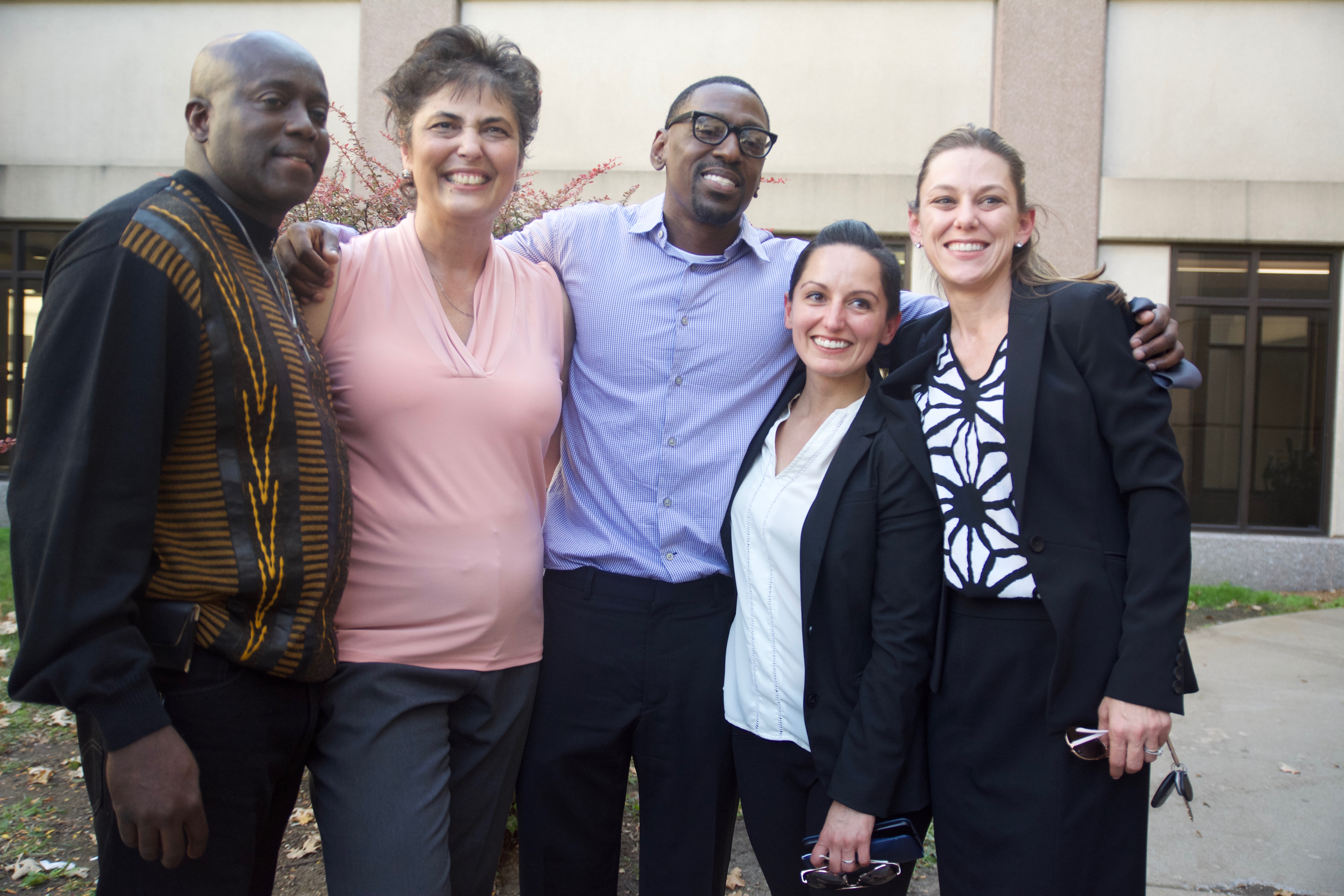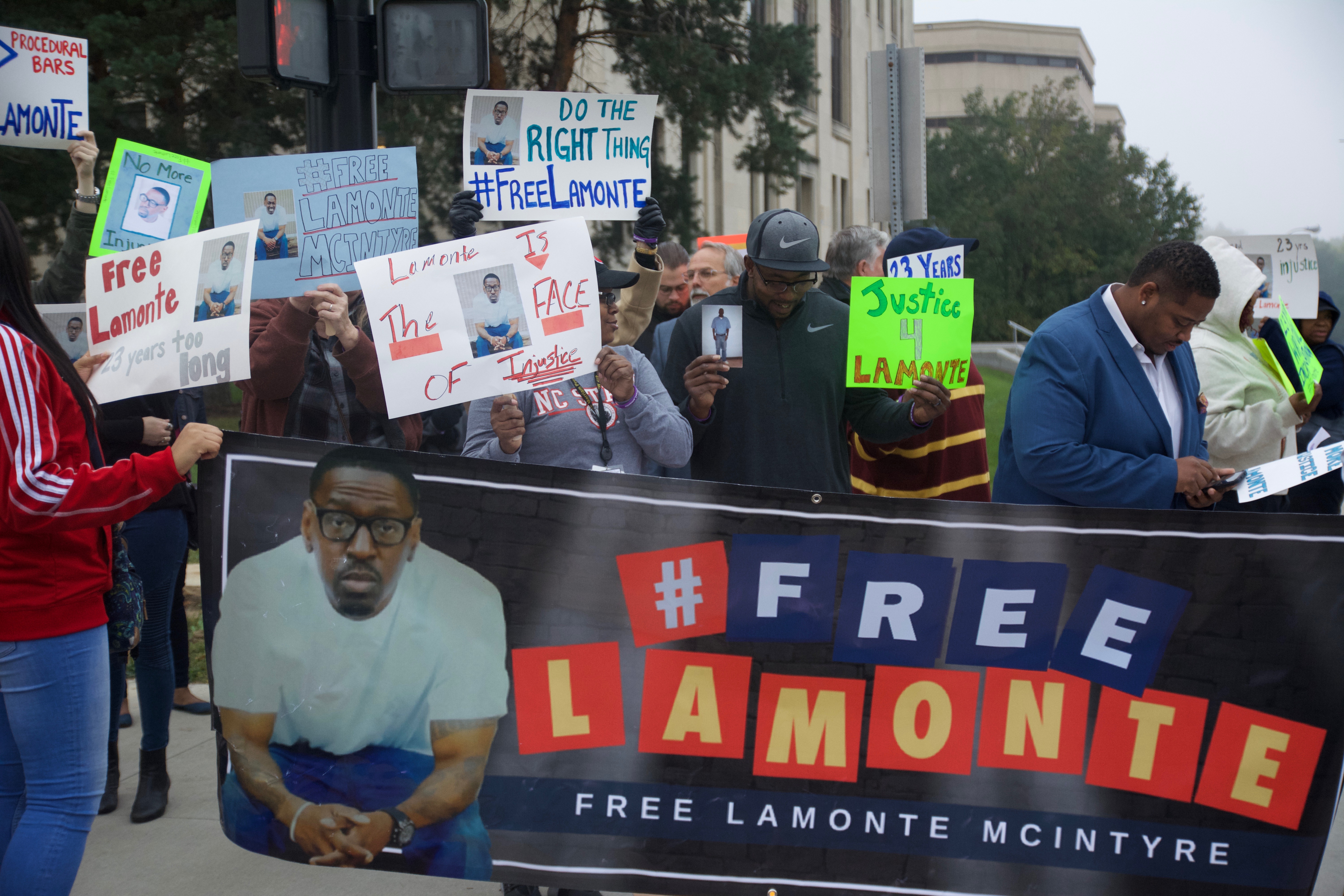
Lamonte McIntyre spent 23 years in prison for a crime he did not commit.
He was wrongfully convicted of murdering two men, Donald Ewing and Doniel Quinn, who were shot dead on April 15, 1994, in Kansas City, Kansas. McIntyre, only 17 at the time, was convicted and sentenced to two life terms despite no evidence linking him to the crime. Roger Golubski, the lead detective, solicited sexual favors from the key witnesses in the case, threatening to arrest them if they didn’t cooperate. The actual police investigation lasted less than 20 minutes.
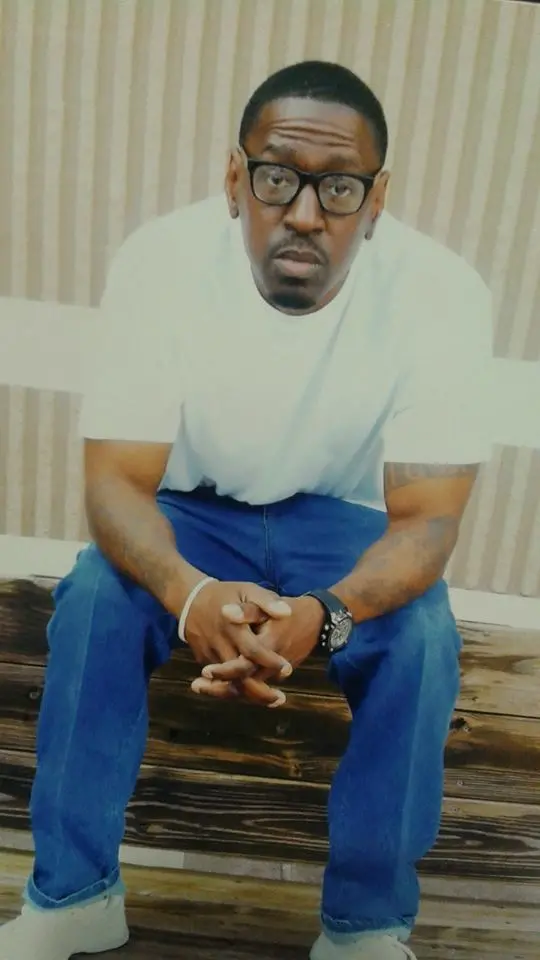
This is just one example of a case the Missouri-based Midwest Innocence Project has litigated. With their help, on October 13, 2017, McIntyre was exonerated and walked out of prison a free man.

Tricia Rojo Bushnell, 38, leads the Midwest Innocence Project, serving as executive director. She is also the president of the Innocence Network, an affiliation of 67 independent innocence organizations dedicated to freeing the wrongfully convicted. As a Mexican-American woman, Bushnell is the first person of color to lead the prestigious Network.
Bushnell is no stranger to criminal injustice. While working to overturn wrongful convictions, she says she has seen racism at play in every level of the criminal legal system. She called for greater transparency and accountability within police departments, but said change is “going to have to come from the outside in.” She noted, “I don’t think that, as designed, law enforcement agencies want to change. We can’t wait for a change in the culture to get where we need to get.” Indeed, with the flagrant police misconduct and lack of transparency that exist, individuals are wrongfully convicted at an astonishingly high rate in the United States, estimated to be as high as 7 percent.
“In our office, we say the number one leading cause of wrongful convictions is systemic racism,” Bushnell said. She said this racism manifests in police and prosecutorial misconduct, torture, and bad lawyering that disproportionately affect Black and Brown communities in the U.S. It also manifests in the lack of diversity both on the bench and within police, prosecutors, and public defender’s offices. “When the vast majority of attorneys—but in particular defense attorneys—are white representing Black and Brown folks, that is systemic racism,” Bushnell said. “We could talk about white saviorism all day long when you talk about lawyering.”
Bushnell said her personal experiences inform her understanding of race in the legal system. “My family’s from Mexico, but I have white privilege. I’m a very pale person. That means something that less than 7 percent of all lawyers are Latinx, that less than 3 percent are Latina.” Additionally, very few attorneys have a personal connection to the criminal justice system. Bushnell, however, knows what it’s like to have a loved one in prison. “My family has been incarcerated. I have sat at the other side of the table,” she said.
Throughout her career, Bushnell had to carve her own leadership path. She nominated herself to serve as president of the Innocence Network and was the first person to run on a contested election. “The path that is made for people to have leadership [positions] wasn’t meant for me,” she explained. “It’s not meant for poor Mexican girls who come from families who’ve been incarcerated. It wasn’t designed for me to be there, so I can’t use their paths to get there.”
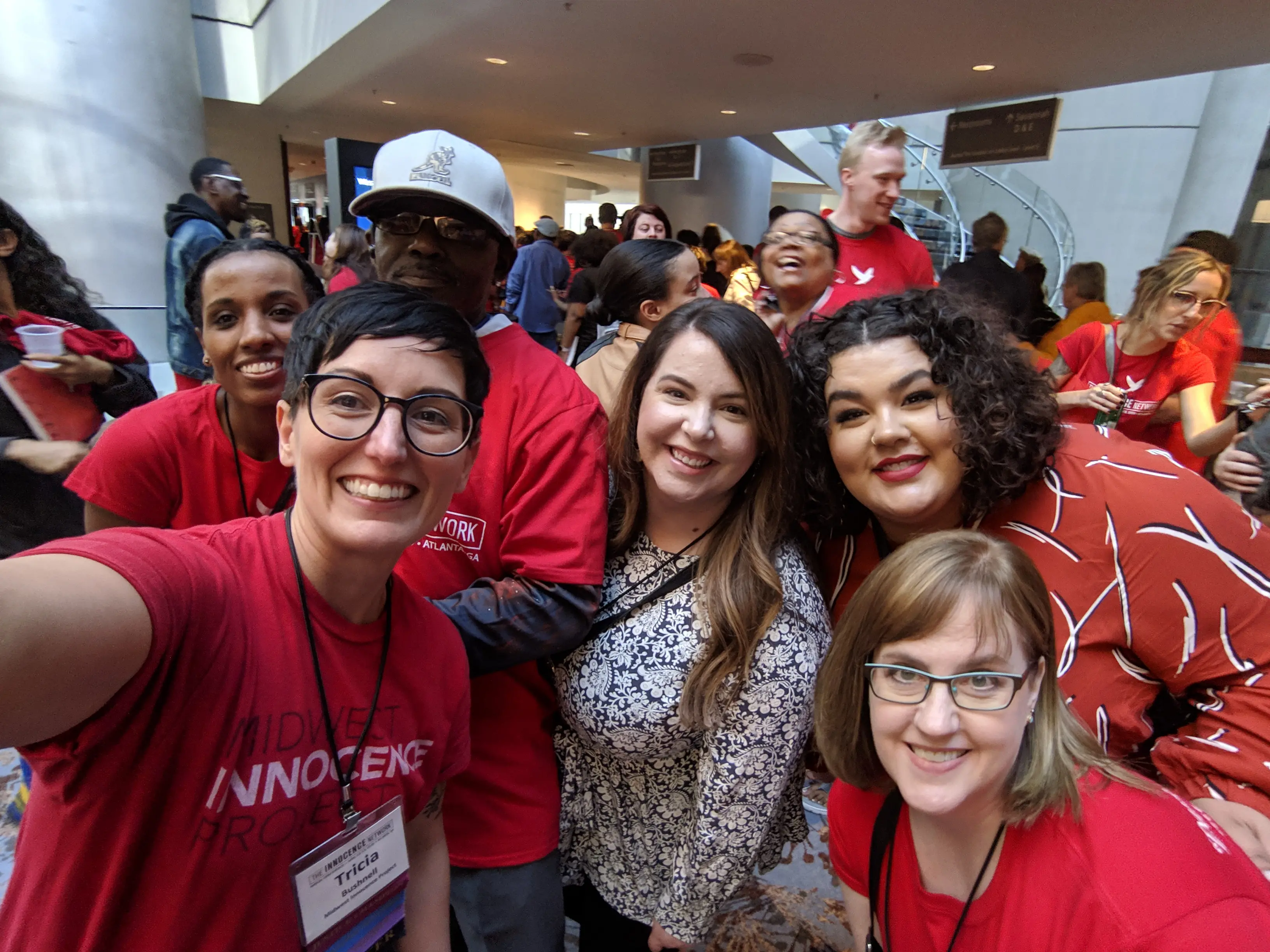
Given her own experiences, Bushnell has worked actively to diversify the Innocence Network and invest in leadership development. In addition to focusing heavily on diversity, equity, and inclusion, she has made racial justice a top priority in the Network given the extent to which racism affects wrongful conviction.
While Bushnell leads the Innocence Network, she knows that the criminal justice system is broken for guilty people too. Crime is often the result of a series of systemic failures, she explained. “We know all the ways in which leading up to it, [people who committed a crime] were abandoned and abused and neglected by society in the most horrific ways,” she said. “If we had provided the services upfront, none of this would have happened.”
Bushnell said innocence organizations choose to focus on the innocent because innocence is politically useful, not because wrongful conviction is more important than the plethora of other problems in the criminal legal system that affect innocent and guilty alike. Innocence cases are “the clearest examples that the system is unfair in a way that everyone wants to care about,” she explained. “And when we reform it, it reforms it for everyone even if it started with an innocence organization.”
Indeed, Bushnell said most people doing innocence work didn’t come to the work because they only wanted to represent innocent people. “In our office, when people interview and say all I ever wanted to do was represent innocent people, we don't take those people,” Bushnell said. “Because that’s not what we’re here for.”
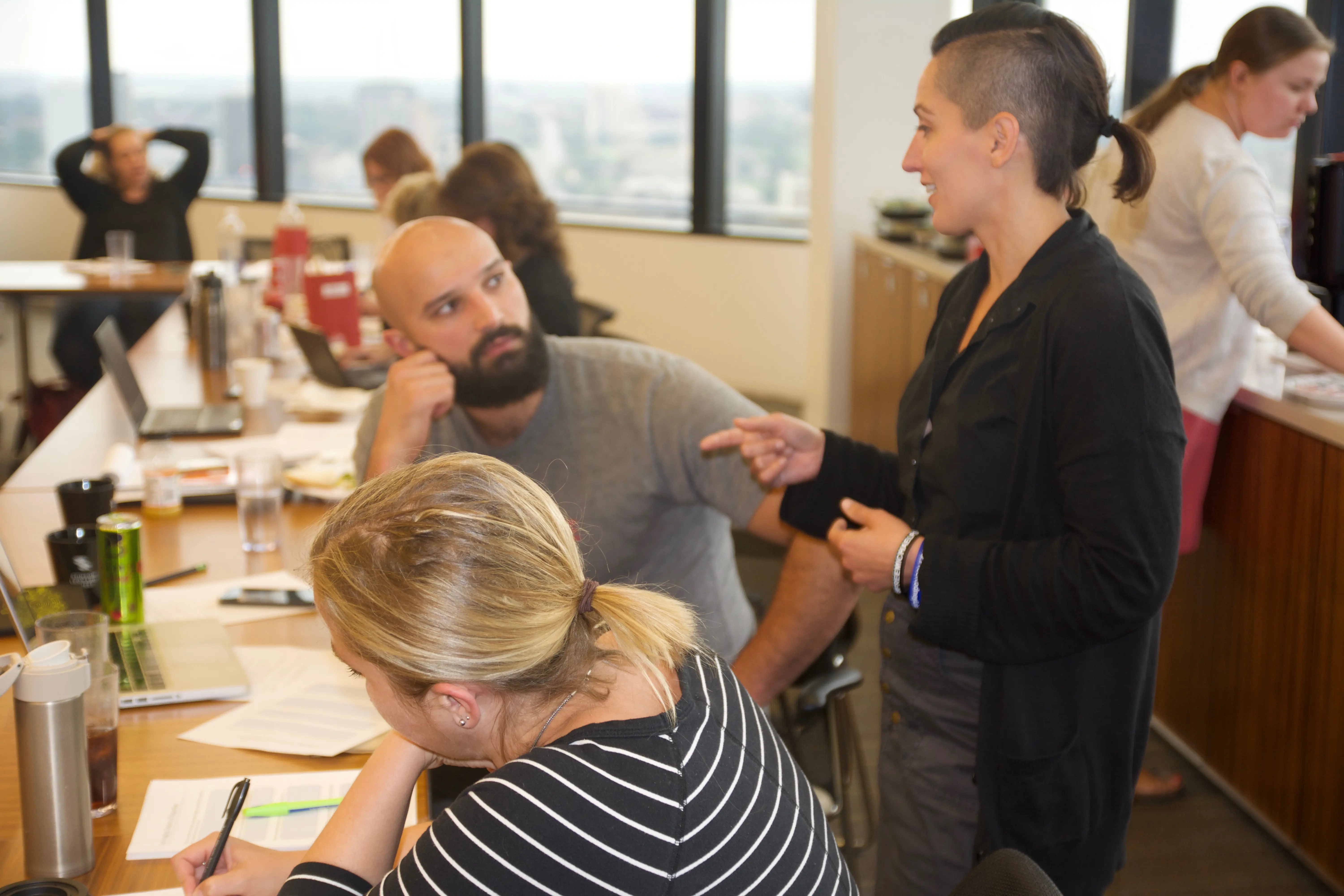
Given all the injustices in the criminal legal system, Bushnell identifies as a prison abolitionist, advocating for an end to incarceration. “I consistently ask: What does the world look like without prison? If we dedicate ourselves to saying we shouldn’t incarcerate people, what are the alternatives? And let’s do that. I just don’t think that incarceration is the end result,” she said.
While Bushnell identified as an abolitionist herself, she acknowledged a tension between the prison abolition movement—the movement to abolish prisons and re-imagine justice away from incarceration—and innocence work. Despite engaging in similar work, she explained, those who work for the innocence movement and those who work for prison abolition rarely collaborate. “When you have two communities that aren’t talking to each other and working in the same space, it’s a tension,” she said. She called for more collaboration between the two movements.
When asked about why she does the work, Bushnell responded, “How could you not do this?” Over 2,750 individuals have been exonerated since 1989 alone, with hundreds more wrongfully convicted still seeking representation. Just like Lamonte McIntyre, many were wrongfully convicted as teenagers only to spend decades in prison for a crime they did not commit. For a criminal “justice” system, the U.S. legal system continues to fall short when it comes to actually delivering justice.
While innocence organizations attempt to address these miscarriages of justice, there is only so much they can do when the legal system itself is steeped in racism. That’s why Bushnell does not believe in prisons anymore. She said, “These are problems that will not be fixed.”


